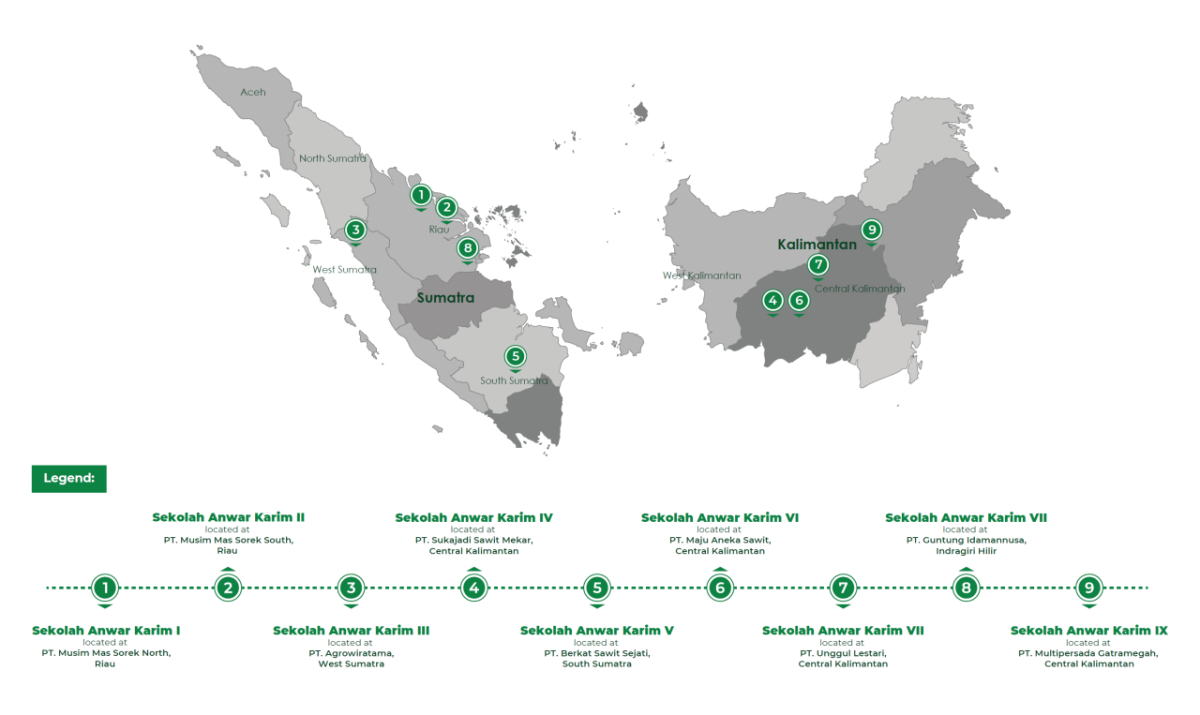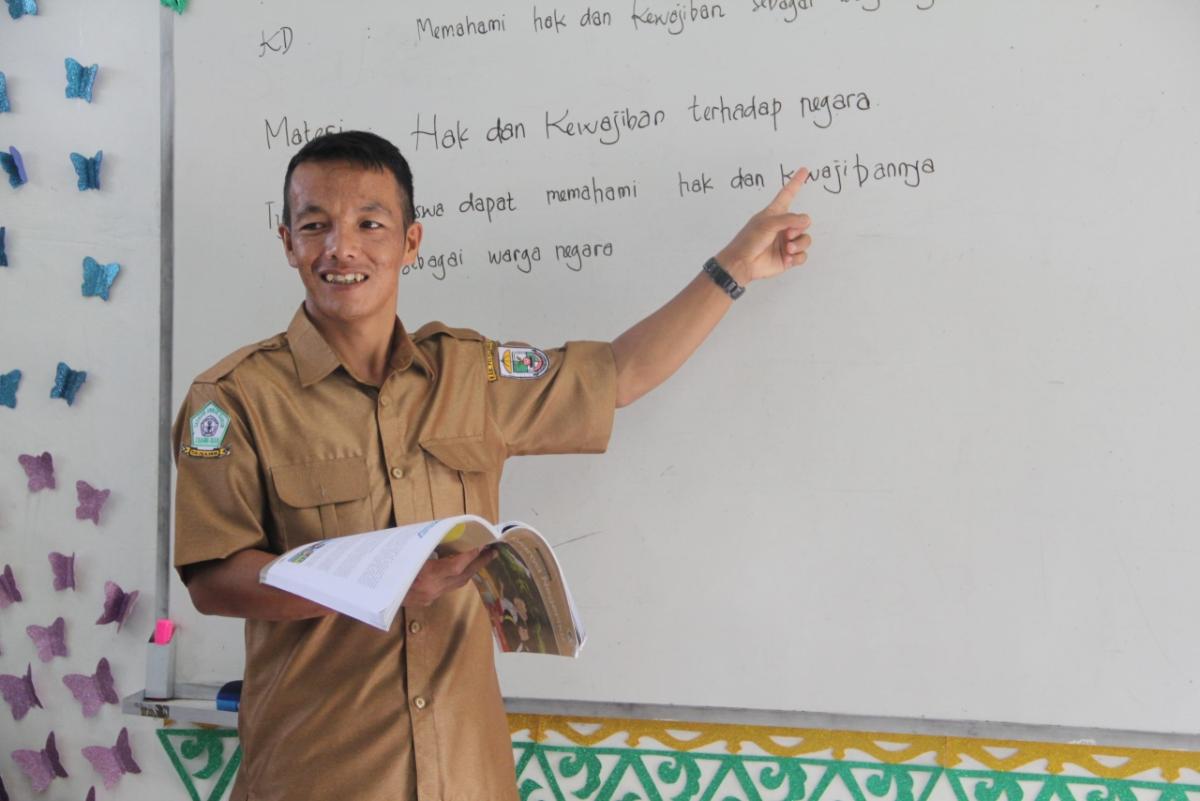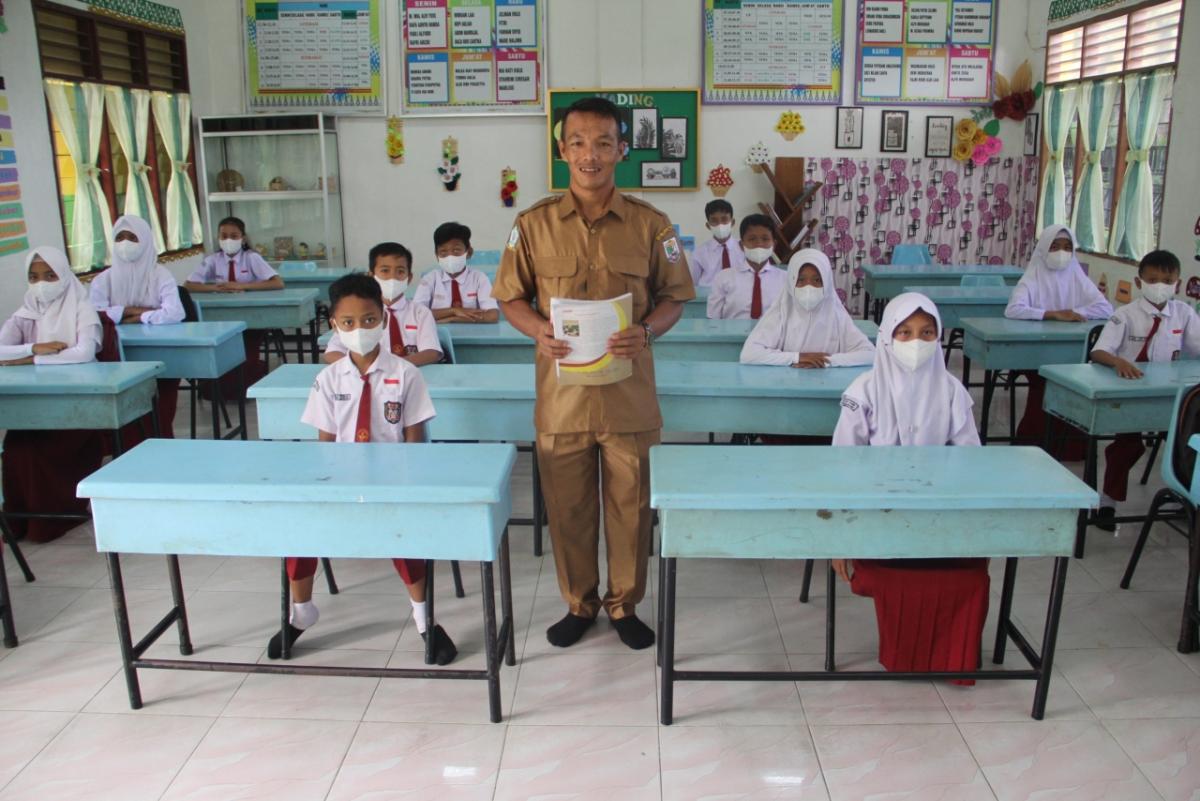Providing Education For Disadvantaged Rural Communities
By Devane Sharma
Musim Mas group believes that education is the key to economic development and better livelihoods. Many of the group’s plantations are in rural areas of Indonesia with limited access to schools. Therefore, the group has decided to build and fund schools that cover kindergarten to junior secondary school levels for the children of its plantation workers. These schools provide free education for the children of the company’s plantation workers. When the students go to secondary schools, Musim Mas also offers complimentary transportation.
Rated as top schools in each respective region, the schools employ experienced and dedicated teachers and ensures that the schools follow the National Standard Curriculum (KTSP).
Each of the schools is also equipped with computer labs and games rooms. Students also enjoy the comfort of traveling to school in shuttle buses from community plantations. Student life is further enriched by extra-curricular activities such as well-equipped marching bands trained by special instructors, sports, and leadership development programs.
Through the Anwar Karim Foundation, Musim Mas provides scholarships for underprivileged elementary students to support equal education opportunities for students of surrounding communities. Musim Mas also annually provides uniforms and books to students living in the communities surrounding our plantations.
“The knowledge that what I do helps others grow and develop is what motivates me”– Meet Amri Pinem, a full-time teacher in a Musim Mas-funded school
Armed with a Bachelor’s degree in Education, Amri Pinem began his career as an elementary teacher in the city of Medan in 2012. Amri joined Musim Mas School Number II in Riau as a teacher in 2014. Hear from Amri on his experiences as a teacher in a Musim Mas school, and his aspirations.
Q: What inspired you to be a teacher?
Amri: Growing up, the people around me mostly wanted to be doctors, engineers, pilots or teachers. My dream job was to be a teacher. It has always felt like a calling from the heart and there are two main reasons for this. Firstly, I like to help others learn. It gives me great satisfaction to see my students learn new things and develop as individuals. Secondly, I believe learning is a two-way street. While my students expand their horizons through knowledge, I gain new knowledge as well. This drives me to better myself as an educator.
Q: Please tell us a bit more about your daily life as a teacher with Musim Mas.
Amri: A day in school starts with attendance taking. Before diving into the lesson proper, I like to have a chat with my students to get their spirits and motivation up. There I’d also do a quick recap of what we covered in the last lesson. After the lesson, I also do another recap so that they are able to do the homework that has been assigned.
After seeing the students off for the day, I would prepare my material for the next lesson. This can range from making props to lesson plans, and so on.
The idea that I would be bringing value and knowledge to the lives of these children is what keeps me going. It also motivates me to maintain a good attitude so that the children can emulate that.
Q: What is the difference between being a teacher in an urban school vs. one in the plantations?
Amri: I began my career as a teacher in the city, at Bandar Setia Percut Medan in 2012. In 2014 I joined this school in the plantation. Compared to my first teaching assignment, some of the things I truly value at the Musim Mas school are:
A strong sense of discipline. Teachers at Musim Mas schools strongly adhere to punctuality to set a good example for the children.
Excellent infrastructure that covers everything needed for education. This is despite being located in remote plantations.
The strong team work and camaraderie among Musim Mas teachers. We work together closely to advance our own knowledge.
The benefits for teachers are also excellent as we each are provided health benefits such as insurance, meal allowances and we are paid bonuses. This gives me peace of mind and allows me to focus my energies on being an educator.
Q. What difference has the plantation schools made in the lives of these children?
Amri: Before this school was built in 2002, the plantation’s children had to attend schools in other villages. This school has vastly benefited the children as they get easy access to a well-equipped school, teachers that have bachelor’s degrees, and also shuttle transportation.
Transportation is of great value given how vast the plantations are. Each morning, the children wait at their assigned bus stops. After school, the bus brings them back to the same bus stop. This effectively gives them access to education.
Q. What are your hopes for the plantation schools?
Amri: Since its establishment, the school has always been well regarded from sub-district to provincial levels. The school has participated in numerous activities, both academic and non-academic up to the provincial level.
It is my hope that the school will raise a future generation of individuals with a noble character that are guided by righteous teachings. I hope the school will always be well-regarded from the sub-district to provincial levels and that it will always embrace knowledge and be successful for the years to come.




